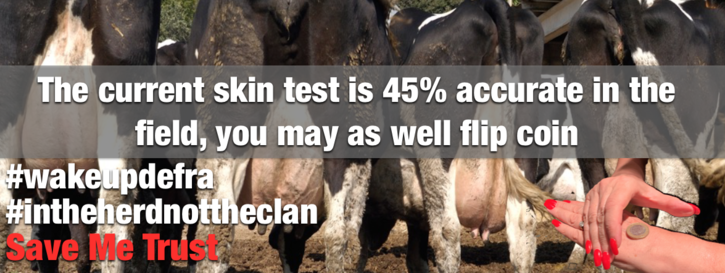10,000 signatures reached
To: UK Government
Public Inquiry into Bovine Tb and the current policy to cull badgers.

Dr. Brian May's Save Me Trust is calling for a public inquiry into the current badger cull
1. The government is allowing badger culling in 11 new areas. Licences have also been authorised in 29 existing areas, badger culling will take place in 40 zones.
2. The government can’t identify the disease in cattle. Cattle-to-cattle transmission is responsible for the majority of TB incidents in the herd. The current test is around 45% effective in the field. The government is irresponsible to launch a cull on badgers without a bTB test that identifies the disease accurately.
3. The government called for a review of the policy in 2018 yet it hasn’t responded to the Godfrey Review before issuing the new licences
4. Badger culling is financially unsustainable and it's not helping farmers as it won’t stop herd breakdowns.
5. The Independent ISG report said the cull was inhumane. the report was held up by Owen Paterson and this issue was never addressed. It continues to be inhumane.
6. Btb remains latent in the herd and is spread in the slurry to other cattle and no system has been put in place to reduce the spread through this. Thousands of tons of slurry are produced by cattle every hour of every day. Anaerobic macerators should be fitted on every farm to neutralise the slurry by killing bTB.
7. Leading government Scientist Lord John Krebs called it a ‘crazy scheme’ and said that ‘the government is embarking on the scheme that isn’t backed up by science.’
8. The government has embarked on a costly eradication program with no proven transmission route for the disease and no proven track record for success
9. TB in cattle soared by 130% in one of the longest running cull zones this year, showing the policy is failing. Government data from the Gloucestershire pilot cull zone for 2018 show a 130% increase in confirmed bTB cases in cattle after 6 years. (OTFW)
10. Only a Public Inquiry can answer these questions.
1. The government is allowing badger culling in 11 new areas. Licences have also been authorised in 29 existing areas, badger culling will take place in 40 zones.
2. The government can’t identify the disease in cattle. Cattle-to-cattle transmission is responsible for the majority of TB incidents in the herd. The current test is around 45% effective in the field. The government is irresponsible to launch a cull on badgers without a bTB test that identifies the disease accurately.
3. The government called for a review of the policy in 2018 yet it hasn’t responded to the Godfrey Review before issuing the new licences
4. Badger culling is financially unsustainable and it's not helping farmers as it won’t stop herd breakdowns.
5. The Independent ISG report said the cull was inhumane. the report was held up by Owen Paterson and this issue was never addressed. It continues to be inhumane.
6. Btb remains latent in the herd and is spread in the slurry to other cattle and no system has been put in place to reduce the spread through this. Thousands of tons of slurry are produced by cattle every hour of every day. Anaerobic macerators should be fitted on every farm to neutralise the slurry by killing bTB.
7. Leading government Scientist Lord John Krebs called it a ‘crazy scheme’ and said that ‘the government is embarking on the scheme that isn’t backed up by science.’
8. The government has embarked on a costly eradication program with no proven transmission route for the disease and no proven track record for success
9. TB in cattle soared by 130% in one of the longest running cull zones this year, showing the policy is failing. Government data from the Gloucestershire pilot cull zone for 2018 show a 130% increase in confirmed bTB cases in cattle after 6 years. (OTFW)
10. Only a Public Inquiry can answer these questions.
Why is this important?
The current badger cull policy is inhumane, ineffective, financially unsustainable and can't possibly succeed in its goal to reduce bovine TB in cattle.
It's bad for badgers, cattle, farmers and the public.
It's bad for badgers, cattle, farmers and the public.
